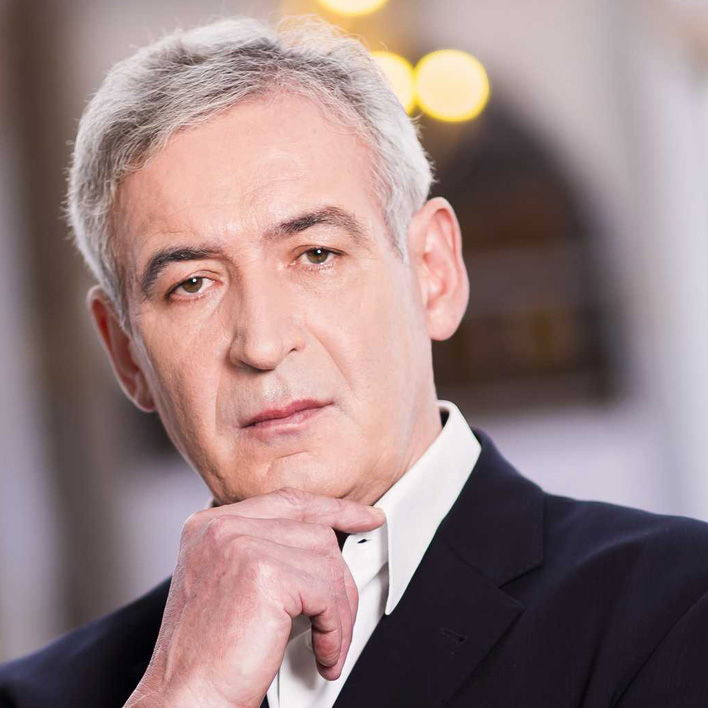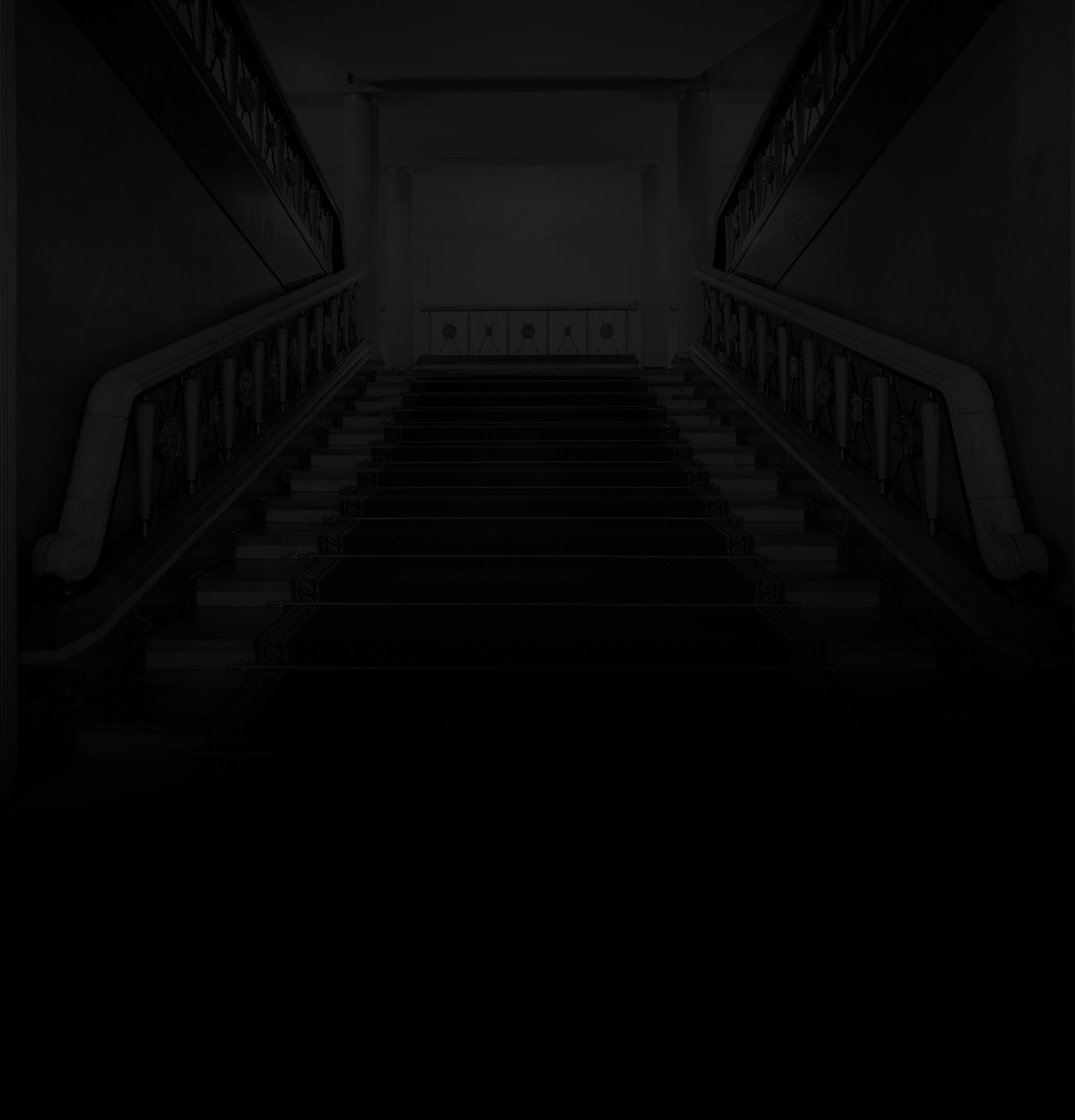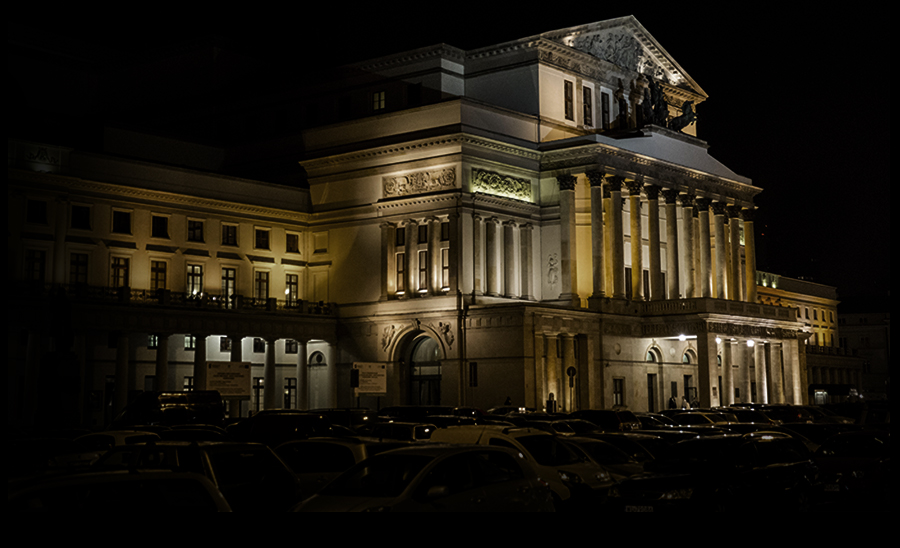
Waldemar Dąbrowski is the General Manager of the Polish National Opera, arts administrator, politician, former minister of culture (2002–2005).
A graduate of the Department of Electronics at the Warsaw University of Technology, Waldemar Dąbrowski also completed the Executive Program for Leadership Development at Harvard University.
He ventured into the cultural management scene as the co-founder of the Riviera-Remont Club (1973–1978). In 1982, together with Jerzy Grzegorzewski, he became a manager of the Studio Art Centre in Warsaw, a leading cultural institution of the time. He produced over 70 plays at the Studio Theatre, many of which toured internationally, showcasing leading Polish theatre, music, and visual artists. Under his leadership, the institution became a real meeting place of the arts and an embodiment of the concept of the correspondance des arts, in which he is deeply invested. At the same time, together with Roberto Ciulli, the then director of the Theater an der Ruhr, he co-founded the Theaterlanschaft Polen in the Ruhr that explored the main developments in Polish theatre and arts vis a vis the European context for two years.
In 1984, together with Franciszek Wybrańczyk, Mr Dąbrowski founded the Sinfonia Varsovia orchestra, which gained almost immediate renown under the music leadership of Sir Yehudi Menuhin. Over the years, the ensemble worked with a number of celebrated artists, including Krzysztof Penderecki, who served as its music director for almost two decades.
In 1990 Waldemar Dąbrowski became Deputy Minister of Culture and Art of Poland and the President of the Board of the Polish Cinematography Committee. He held this position for four years, carrying out a thorough reform of the Polish film industry.
Having become the General Manager of the Polish National Opera, Teatr Wielki, Warsaw in 1998, Mr Dąbrowski commissioned the now legendary production of Madame Butterfly by Mariusz Treliński and was the driving spirit of installing the Apollo Quadriga at the top of the opera house building in line with Antonio Corazzi's original design created in the early 1800s.
As the minister of culture of Poland (2002–2005), he set up a scheme to fund infrastructural investments in the cultural sector using EU finds and the Norway Grants, which resulted in over 700 projects across Poland. He established the Polish Film Institute, the Book Institute, the Theatre Institute, the Audiovisual Institute, and the Fryderyk Chopin Institute, now one of the leading institutions preserving and promoting Polish cultural heritage. As the Chairman of the 2010 Chopin Bicentenary Office, he coordinated a few hundred events marking the 200th anniversary of Chopin's birth in Poland and abroad.
In October 2008 Mr Dąbrowski was reappointed as the General Manager of the Polish National Opera. During his second time in office, the institution was nominated for the International Opera Award for Best Company, its artistic director, Mariusz Treliński, won the International Opera Award for Best Director (2017), the company's production of Władysław Żeleński's Goplana was named Best Rediscovered Work (2017), while Mr Dąbrowski himself received the International Opera Award for Leadership (2019). From 2010 to 2016 he served as a board member of Opera Europa, an institution bringing together over 200 opera companies worldwide. With Waldemar Dąbrowki at its helm, the Polish National Opera has mounted a range of internationally renowned productions independently and in collaboration with such international partners as the Metropolitan Opera New York, Teatro Real Madrid, Theater an der Wien, Royal Danish Opera, English National Opera, Mariinsky Theatre, Bregenzer Festspiele, Salzburger Festspiele, Festval d'Aix-en-Provence. The theatre has also launched its own streaming service that offers access to its productions, concerts, and educational projects to a broad section of the public. Mr Dąbrowski was behind the establishment of the Opera Academy Young Talent Development Programme at the Polish National Opera, whose former members include Jakub Józef Orliński, Krzysztof Bączyk, and Andrzej Filończyk. He also set aside a space for a contemporary art gallery in the opera house's vast foyers.






